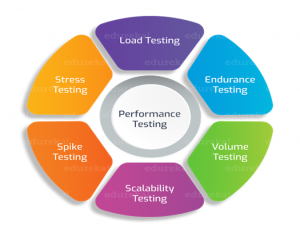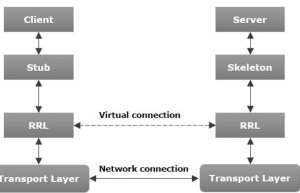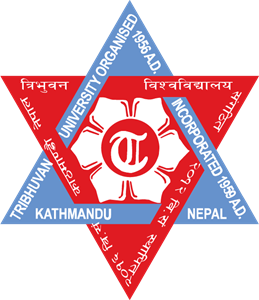BCA Sixth semester subjects lists:
- Advanced Java Programming
- Applied Economics
- Distributed Systems
- Mobile Programming
- Network Programming
- Project II

BCA Sixth Semester Syllabus – A Complete Guide for TU Students
The BCA Sixth Semester is a vital stage in your Bachelor’s degree, where you will delve into advanced topics that prepare you for a successful career in the IT industry. This semester includes a comprehensive syllabus with subjects such as Advanced Java Programming, Applied Economics, Distributed Systems, Mobile Programming, Network Programming, and Project II.
In this blog, we’ll go over the subjects in the BCA Sixth Semester syllabus, and provide you with useful resources to help you stay ahead of your coursework. If you haven’t already checked out the BCA Fifth Semester Syllabus, make sure to visit BCA Fifth Semester TU Syllabus. Also, if you’re looking to understand what’s coming up in the BCA Seventh Semester, visit BCA Seventh Semester TU Syllabus.
📌 BCA Sixth Semester Subjects
Here’s a breakdown of the key subjects you’ll encounter in the BCA Sixth Semester:
1️⃣ Advanced Java Programming
Advanced Java Programming builds on the basic Java concepts you learned earlier. In this subject, you’ll dive deeper into the following:
- Java Collections Framework and Generics
- Multithreading and Concurrency
- Database Connectivity with JDBC
- JavaFX for building graphical user interfaces
- Servlets and JSP for web applications
- Advanced Object-Oriented Programming (OOP) concepts and their real-world applications
2️⃣ Applied Economics
Applied Economics in the BCA Sixth Semester will give you insights into how economics applies to the IT industry and the broader business landscape. Topics include:
- The basic principles of microeconomics and macroeconomics
- Demand and supply analysis
- Cost structures and production in businesses
- Economic principles applied to the IT sector
- The impact of global economics on technology companies
- Government policies and their influence on the technology market
3️⃣ Distributed Systems
In Distributed Systems, you will learn about systems that involve multiple independent computers working together to perform a task. Key areas covered are:
- Client-server and peer-to-peer architectures
- Concurrency and synchronization techniques
- Fault tolerance and replication in distributed systems
- Real-world examples such as Google File System and MapReduce
- The role of distributed databases and cloud computing in modern systems
4️⃣ Mobile Programming
Mobile Programming is a crucial subject in today’s technology-driven world. You will gain hands-on experience in developing applications for mobile devices. The topics include:
- Introduction to Android and iOS programming
- Designing mobile UIs and working with APIs
- Mobile app architecture and databases
- Working with mobile features like GPS, sensors, and camera integration
- Best practices for building responsive and efficient mobile applications
5️⃣ Network Programming
Network Programming teaches you how to develop software that communicates over networks. In this subject, you’ll learn about:
- Sockets programming and TCP/IP protocols
- Building client-server applications
- HTTP, FTP, and other communication protocols
- Wireless networks and mobile communication technologies
- Network security and data encryption for safe communication
6️⃣ Project II
In Project II, you will work on a hands-on project that integrates everything you’ve learned throughout the semester. This involves:
- Choosing a relevant project topic
- Designing the project using appropriate tools and technologies
- Writing project documentation, including reports and user manuals
- Collaborating with peers to simulate real-world IT projects
- Presenting your project to faculty and peers
📖 How to Prepare for the BCA Sixth Semester Exams?
✔ Practice Advanced Java – Work on building applications using JavaFX, Servlets, and JSP.
✔ Master Applied Economics – Focus on economic models and their application in the IT sector.
✔ Study Distributed Systems – Understand the principles behind distributed computing and learn to design fault-tolerant systems.
✔ Work on Mobile Programming – Build mobile apps and learn to integrate features like location services and databases.
✔ Learn Network Programming – Implement network applications and get hands-on with different protocols and security mechanisms.
✔ Complete Your Project – Start early on Project II, use real-world tools and technologies, and write clear documentation.
🔗 What’s Next After BCA Sixth Semester?
Once you’ve completed your BCA Sixth Semester, you’ll move on to the BCA Seventh Semester, where you’ll further refine your skills and gain advanced knowledge in specialized areas. You can explore the next semester’s syllabus here:
👉 BCA Fifth Semester Syllabus & Notes
👉 BCA Seventh Semester Syllabus & Notes
🔥 Stay Updated with BCA Study Materials!
For more updates on the BCA Sixth Semester, including notes, study resources, and syllabus updates, make sure to follow us on social media:
📌 Twitter (X): Follow Here
📌 Facebook: Follow Here
If you need any BCA Sixth Semester materials or have any questions, feel free to drop a comment below. Best of luck with your semester! 🚀




